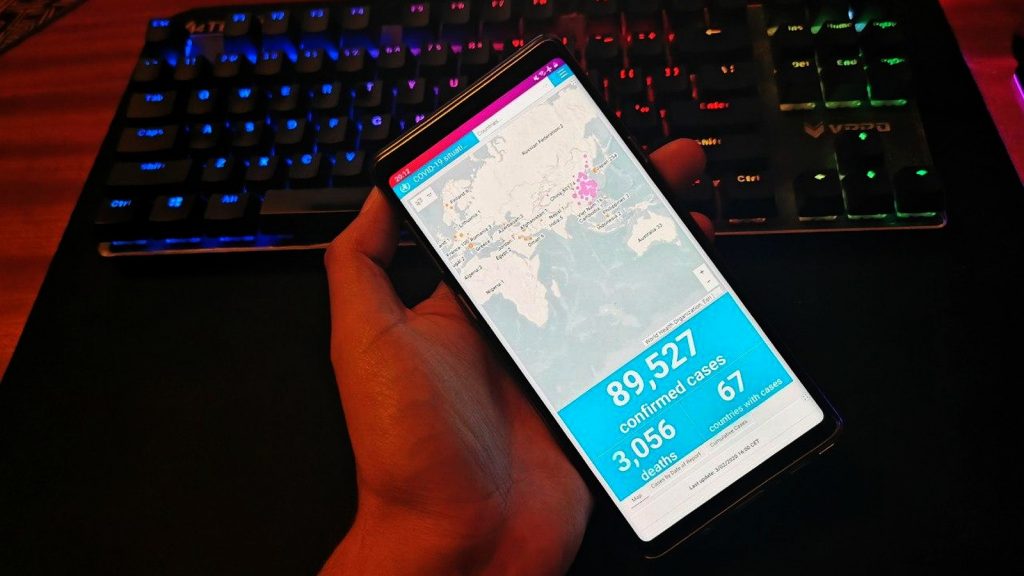Sony launches the WF-1000XM6 in South Africa with upgraded noise cancelling, better call clarity and premium sound. Pricing starts at R7,999.
Updated: Get your COVID-19 facts straight with these online resources

In these times of hysteria, misinformation and scaremongering, it’s important that you understand the facts surrounding the coronavirus (COVID-19) outbreak.
We’ve compiled a list of Twitter accounts you should follow, and highlighted a useful dashboard that charts daily numbers, but in this piece, we’re looking at online resources.
These are courses, white-papers, and information sheets that you should stow away for future reading created by reputable companies and agencies.
WHO
- The World Health Organisation has a number of online training courses for COVID-19. Although some of these are for health care professionals, they could prove useful for laypeople too.
- This resource is compiled specifically by WHO’s Africa regional branch. It includes a myth-busting section, travel advice, and social media cards on personal protection.
- WHO has a detailed Q&A section here.
- WHO’s live event ticker can be found here.
US CDC
- The US CDC has published its guidance for citizens, from how it spreads to prevention and treatment.
- A print-friendly fact sheet is available here.
- If you’re travelling, the CDC also has guidance on risk assessments for each country on earth as well as an FAQ.
- For teachers and school administrators, the CDC has also published guidance on how to plan, prepare or respond to COVID-19 within schools.
EU ECDC
- The European Centre for Disease Prevention and Control published its daily risk assessment — an overall view of the current coronavirus crisis — here. It’s full of short, tweetable facts too.
- The ECDC overarching COVID-19 resource page is available here.
South Africa COVID-19 news sources
- South Africa’s National Institute for Communicable Diseases published its A-Z about COVID-19, detailing the most current news in PDF forms.
- The Department of Health has activated a WhatsApp support hotline for South Africans. It can be accessed by adding 0600 123 456 to your contacts, and messaging “Hi”.
- A new government website has also been activated. It can be accessed here.
- A data-free, zero-rated version of the above can be accessed by visiting coronavirus.datafree.co on web browsers, or simply click this link.
- This data visualisation by Media Hack displays infections per day, the ages of those infected, the countries from which the infected originate, and the gender share of the infected. View it here.
- The SA Government’s master document, which includes closed borders, guidelines, myth busters, hotline numbers, and more can be found here.
Dashboards and trackers
- Our mention of Johns Hopkins’ tracker can be found here, but some may find its layout esoteric.
- The University of Virginia’s uses a colour-coded heat map-style tracker.
- This WHO tracker shows what other emergencies — health or natural disasters — the world is currently facing.
- More trackers, for individual regions, can be found here.
- Microsoft’s Bing has launched its own global tracker, which includes links to breaking news stories as well. Find it here.
Online courses
- Coursera, alongside Imperial College London, is offering a course called “Science Matters: Let’s Talk About COVID-19“. It’s free and covers topics like the scale of the outbreak, scientific explanations of said outbreak, and infectious disease modelling.
- FutureLearn, with the London School of Hygiene and Tropical Medicine, is also offering a course called “COVID-19: Tackling the Novel Coronavirus“. It’s available for free and runs for three weeks. More about the course can be found here.
- St George’s University, Grenada, is also offering a course called “An Examination of Coronavirus COVID-19“. It’s free and starts on 5 March.
We’ll update this list as more sources are made available.
Feature image:Andy Walker/Memeburn


